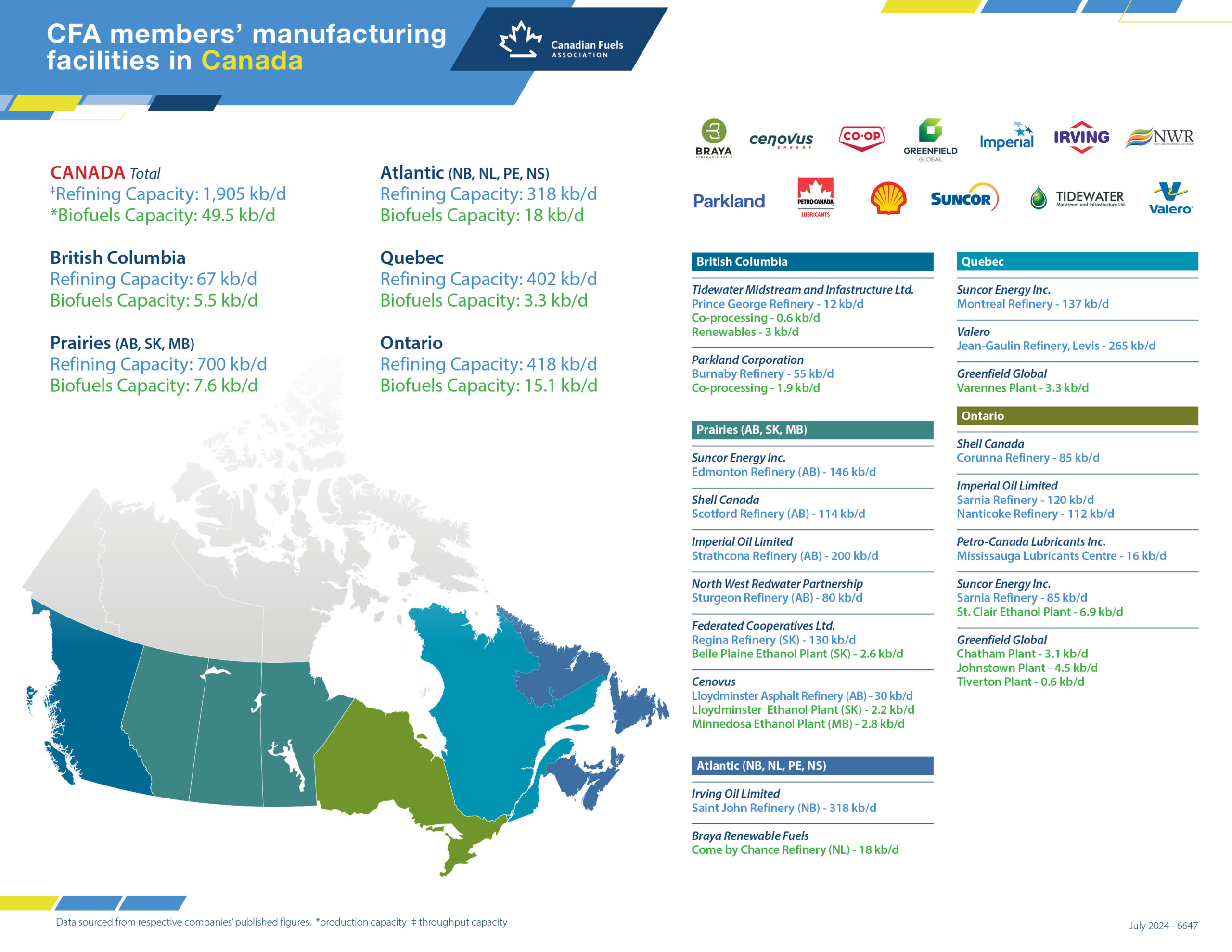
Fuel Production
Our refineries are complex, labour and capital intensive manufacturing facilities that employ state-of-the-art technologies to create useful products from crude oil.
Overview
Through distillation and a series of chemical processes the crude oil molecules are broken, reshaped and recombined into value-added products like:
- Transportation fuels, including gasoline, diesel and aviation fuel
- Home heating oil
- Lubricants
- Heavy fuel oil
- Asphalt for roads
- Petro-chemical feedstocks, that are further transformed into hundreds of consumer goods and products from plastics, to textile fibres, to pharmaceuticals.
View a more detailed description of the refining process.
Innovation at work
Over the past 40 years, the number of Canadian refineries has decreased, while the capacity of existing refineries has increased. This is because small, less efficient facilities have been replaced with more efficient, expanded facilities. These improvements have been made possible by the new technologies, processes and equipment that result from ongoing research and development in the industry.
Refining Sites and Capacity
Canada is home to 16 refineries and 10 clean fuel facilities, operated by Canadian Fuels Association members and representing the country’s refining capacity and about 70% of the biofuel production capacity. Canada is a net exporter of refined petroleum products and crude oil but a net importer of biofuels.
For Canadian Fuels member contact information, please visit the About section.

